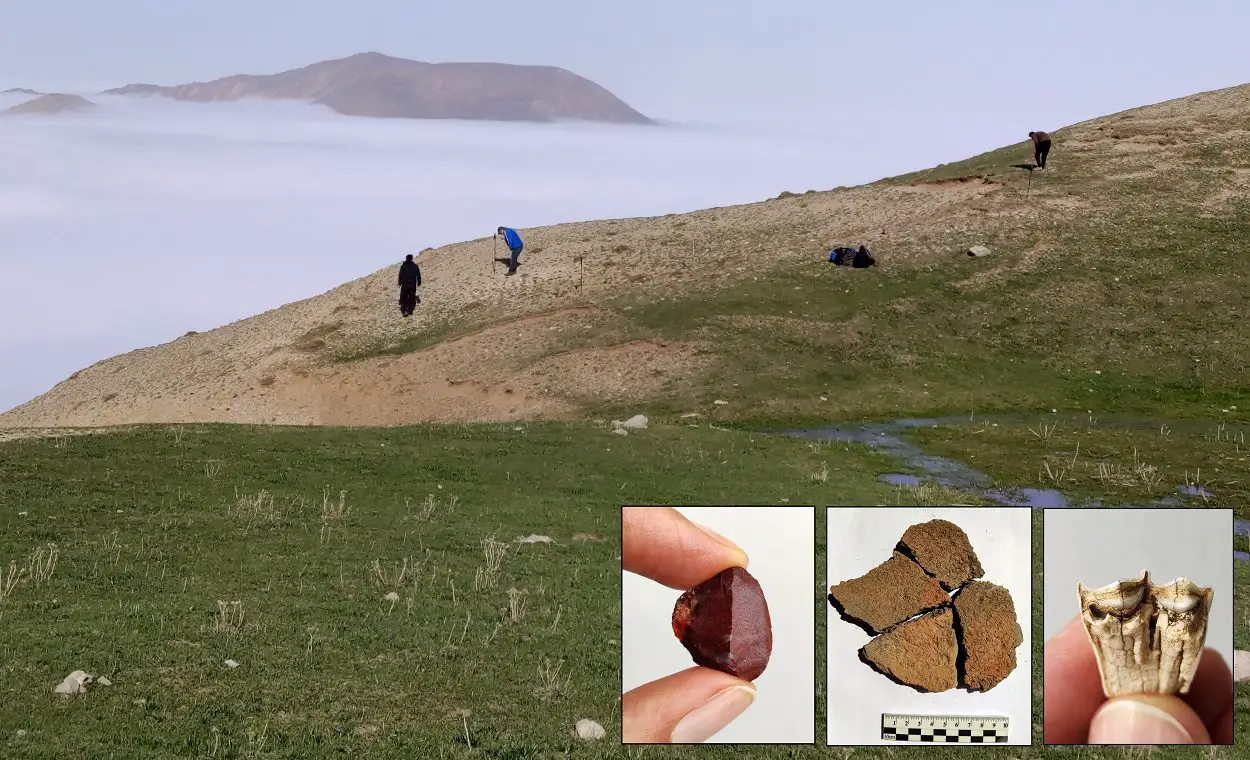Archaeologists have discovered a 7,000-year-old herders’ camp on a mountain top in the Gilan province of Iran.
The discovery was made during a survey project in the mountain ranges in Masouleh, where the team found traces of a late Neolithic settlement 2,400 metres above sea level not far from Shah Moalem, one of the highest peaks in the Talesh Mountains.
The site is the oldest seasonal settlement of prehistoric herders discovered in the south of the Caspian Sea at such a high elevation, where the team found pottery sherds, animal bones and stone tools.
The discovery shows that the late Neolithic herders used the pastures of these mountain tops to graze their herds, giving new insights into pastoral habits after a shift from hunting-gathering to herding.
Nomadic pastoralism is a form of pastoralism in which livestock are herded in order to seek for fresh pastures on which to graze. True nomads follow an irregular pattern of movement, in contrast with transhumance, where seasonal pastures are fixed.
According to Mostafa Pourali, General Director of the Office for Inscription of Properties and Revitalization of Intangible and Natural Heritage, the Masouleh Core Zone Archaeological Survey Project was carried out as part of the efforts to prepare the necessary data to inscribe the “Cultural landscape of the historical city of Masouleh” on the World Heritage List.
Since September 2021, 39 archaeological sites have been discovered in the Core Zone of Masouleh by the team of archaeologists under the direction of Fereidoun Biglari that date back to different periods of prehistoric, historic, and Islamic eras.
Header Image Credit : Fereidoun Biglari





